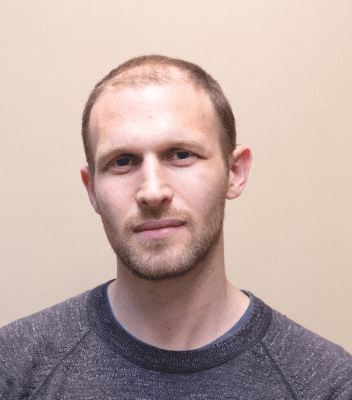2020 Janet Taylor Spence Award

Samuel Gershman
Harvard University
Computational Cognitive Neuroscience Lab
Please briefly describe your research interests.
My interests are broad: my lab works on a wide variety of topics ranging from synaptic plasticity and Pavlovian conditioning in animals to language, perception and reasoning. The main focus of my lab’s research has been on reinforcement learning and decision making. We’re interested in what representations and algorithms the brain uses to act adaptively in the world. Of particular interest has been the question of structure: how do we extract the latent structure underlying our observations, and harness this structure to improve decision making?
What was the seminal event, or series of events, that led you to an interest in your award-winning research?
As an undergrad, I remember learning about the hypothesis that dopamine encodes a reward prediction error. This struck me not only as an extremely important idea, but also as a case study in how computational models could contribute to the advancement of neuroscience and psychology. As I delved deeper in graduate school, and then later as a postdoc and professor, I realized that the idea, despite its appealing simplicity, was incomplete. There were many gaps in the experimental literature, so one of the tasks that I set myself was to enrich this idea, to equip it with the theoretical accoutrements necessary to explain the empirical data. This led to new predictions, which I was able to test both in my own lab and in collaboration with Nao Uchida in Harvard’s Department of Molecular and Cellular Biology.
Tell us about one of the accomplishments you are most proud of within this area of research. What factors led to your success?
In my collaborations with the Uchida lab, it was critical that I show how theory could make non-trivial predictions, and that those predictions were actually correct! For example, I predicted that under certain circumstances, dopamine responses would be a non-monotonic function of reward magnitude. This turned out to be correct, and it built a trust in our theoretical models that we built upon in future collaborations.
What contributions, or contributors, to psychological science do you feel have had a major impact on your career path?
My mentors had a huge impact on me. Before grad school, I was lucky to work with Nathaniel Daw at NYU. At the time that I joined his lab, he had just started, and so for about half a year I was his entire lab! This afforded lots of one-on-one time. He dumped a huge amount of knowledge into my thoroughly ignorant and fertile brain. Then I went to Princeton to work with Ken Norman and Yael Niv, who were terrific mentors. They gave me freedom to pursue many different ideas, but also were a dependable source of guidance. During that time, I also met Josh Tenenbaum, who had been an inspiration to me since I was an undergrad. We started working together, and we continue to work closely together over a decade later. Since his lab is just down the street at MIT, grad students and postdocs flow freely between us, and it’s wonderful to see this next generation of collaborators emerging from our initial collaborations.
What questions do you hope to tackle in the future?
I’m very interested in how high level cognition, particularly “intuitive theories” (theory of mind, intuitive physics, etc.), contribute to reinforcement learning. We are now trying to tackle human video game learning as a problem of theory induction and theory-based planning.
What does winning this award mean to you both personally and professionally?
It’s a huge honor. But awards also obscure the fact that in psychology, as in many other scientific fields, research is a team effort. My success is really the success of a large group of people, and so this award is really a testament to all of their efforts.

